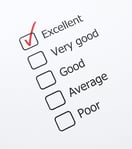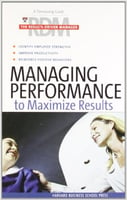I recently reading a terrific book by Harvard Business School Press called "Managing Performance to...
Four Best Practices to Improve Supplier Performance Scorecarding

Effective supplier performance management is more than just the best KPIs. In fact, many performance management initiatives within the supply chain are unsuccessful because they do not measure the correct data, collect it accurately or communicate it with suppliers and other internal departments.
Here are four strategies to focus on when creating--or fixing--your performance management program.
1. Align business initiatives with scorecards
To figure out which KPIs and which suppliers to focus on, meet first with the executive team to determine what the main goals of the business are. Find out where improved performance will actually improve the business’ bottom line. Then, you can take a step back and develop scorecards that will benefit your business.
To figure out which KPIs and which suppliers to focus on, meet first with the executive team to determine what the main goals of the business are. Find out where improved performance will actually improve the business’ bottom line. Then, you can take a step back and develop scorecards that will benefit your business.
2. Establish how you will evaluate performance and communicate
The next step is to determine your thresholds for both excellent and poor performance. Before working with suppliers to improve their performance, you must internally set what your standards are going to be. When will suppliers be rewarded? When will you disengage with poor performers? Decide this before you begin working with suppliers.
The next step is to determine your thresholds for both excellent and poor performance. Before working with suppliers to improve their performance, you must internally set what your standards are going to be. When will suppliers be rewarded? When will you disengage with poor performers? Decide this before you begin working with suppliers.
3. Communicate with suppliers
From initial contact to the SLA to contract re-regotiations, performance mangers need to communicate with suppliers regarding performance expectations. Communicate and open dialogue will help both sides - suppliers will know what to expect and where they need to improve to succeed, and performance managers will learn what’s working for suppliers and what’s not.
From initial contact to the SLA to contract re-regotiations, performance mangers need to communicate with suppliers regarding performance expectations. Communicate and open dialogue will help both sides - suppliers will know what to expect and where they need to improve to succeed, and performance managers will learn what’s working for suppliers and what’s not.
4. Communicate internally
Performance scorecard results are useful for other supply chain departments, but information visibility is necessary for this to take place. Internal visibility will allow for collaboration between performance managers, and other stakeholders as they attempt to decrease the supply base’s susceptibility to natural and financial disaster.
Performance scorecard results are useful for other supply chain departments, but information visibility is necessary for this to take place. Internal visibility will allow for collaboration between performance managers, and other stakeholders as they attempt to decrease the supply base’s susceptibility to natural and financial disaster.
For more on this discussion, check out this blog post: Four Best Practices to Improve Supplier Performance Scorecarding.
And check out the buyer's guide.
For more advice and assistance about developing scorecards for your strategic supplier assesment programs, contact sales@decideware.com



